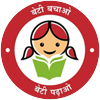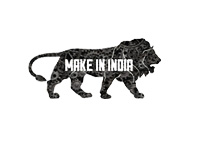Education in Basic Vocations aims to educate rural young women & men in basic vocations and enhancing their self esteem in the society as well as guide them to take up Skill Development Training from other Agencies.
The sequence of activities envisaged under the programme are to mobilize youth into groups, improve their skills, arrange for support services, provides awareness and education on the key focus areas identified as mentioned earlier in NYKS Annual Action Plan guidelines.
There should be increasing emphasis on making the young women and men aware of and handholding for higher level of Skill Development Training from other Agencies so that they gradually become meaningfully employed or self-employed by establish income generating units for their livelihood.
| S.No |
Sector |
Suggested Vocations |
| 1. |
Agriculture |
Mushroom Cultivation, Bee Keeping, Medicinal Plants Cultivation, Horticulture, Floriculture, Vermiculture, Backyard Vegetable Cultivation, Tractor Repairing |
| 2 |
Dairying |
Small Milch/Dairy Animal (Buffalo, Cow) Rearing Units, Milk Collection & Selling, Milk Processing (Ghee, Paneer, Khoya) |
| 3. |
Animal Husbandry |
Goat/ Sheep Rearing for Meat/ Wool, Backyard Poultry & Indigenous Birds (Ducks, Quails), Piggery, Rabbit Rearing, etc. |
| 4. |
Fisheries |
Fish Rearing/ Seed Production in Small Ponds, Fish Processing (Drying, Fish Pickle), Fishing Net Making & Repair, Fish Feed Production, Small Hatcheries, Wage Employment (Through Feeding, Watch & Ward, De-weeding of Ponds, Harvesting) |
| 5. |
Handloom |
Weaving, Processing (Dyeing, Bleaching, Mercerizing), Packaging |
| 6. |
Handicrafts |
Production of Handicraft Items, Processing Activities (Polishing, Coloring) |
| 7. |
Sericulture |
Mulberry Cultivation, Cocoon Rearing, Reeling of Yam |
| 8. |
Social Forestry and Forest Based Activities |
Raising Nurseries, Cultivation of Forest Species on Forest Land/ Wastelands, Collection of Minor Forest Produce (Gum, Berries, Medicinal/ Herbal Products, Honey) |
| 9. |
Food Processing |
Fruits and vegetable Processing for making Jam, Jelly, Murabba, Petha, Chips/ Wafers, Noodles, Papad, Pickle, Bakery Products |
| 10. |
Other Locally Appropriate vocation such as |
Knitting, embroidery, zardozi work, finishing, Cutting and tailoring, Soft Toys, Bamboo/Jute Work: Hand Bags, Baskets, Decorative Pieces, File Cover, Beauty Culture, Candle making, Packaging of house hold articles and painting, Computer and mobile repairing, Motor Rewinding, etc |
A surprise check of these centres may be carried out by State Director or his/her representative. The DYC should visit at least once or twice during the programme












